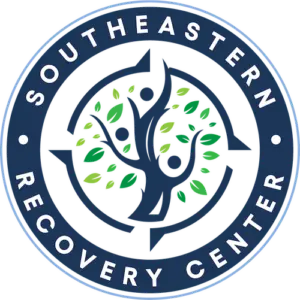The cost of drug rehab treatment in North Carolina can vary greatly depending on the type of program and level of care. Residential rehab facilities, also known as inpatient centers, typically cost the most. On average, a one-month stay at an inpatient rehab facility in the U.S. costs around $56,759.
However, some high-end luxury rehab centers can charge $60,000 per month or more. Outpatient rehab programs are more affordable, averaging $5,000 per month. These programs allow you to live at home while attending therapy and counseling sessions at the rehab center a few times a week.
Partial hospitalization or “day programs” bridge the gap, costing $10,000 to $20,000 per month. With these numbers, there is no denying that rehab is financially tasking and draining. However, you need to remember your health comes first, so costs aside, you really need treatment. So, can you use insurance to cover rehab treatment?
Does Insurance Cover Rehab Treatment?
Yes, health insurance plans, including Medicaid, Medicare, and private insurance, often help cover the cost of rehab treatment. The Affordable Care Act mandates that insurance plans cover substance abuse treatment.
Most insurance companies will cover at least part of the cost of outpatient and inpatient rehab services. The level of coverage can vary between plans.
The specifics of your policy will determine things like the number of days covered, any out-of-pocket costs, and if you need preauthorization. It’s best to check with your insurance provider to understand the details of your coverage before entering an inpatient program.

What Types of Rehab Treatment Does Insurance Cover?
If you have health insurance, chances are good that it will help cover at least part of the cost of drug or alcohol rehab treatment. Most insurance plans now recognize addiction as a medical issue and cover rehab similarly to other health conditions. Here are the main types of treatment insurance typically covers:
Inpatient Rehab
Inpatient or residential rehab provides 24-hour care in a controlled environment. Insurance usually covers stays of 30 to 90 days. Residential treatment allows you to focus fully on your recovery without distractions from everyday life.
Outpatient Care
Outpatient rehab lets you live at home while attending treatment sessions at a facility. Insurance often covers outpatient care, including counseling, therapy, and medication management. Outpatient is a good option if you need more flexibility or have work or family commitments.
Intensive Outpatient
Intensive outpatient treatment provides a higher level of care than regular outpatient but still allows you to live at home. Programs usually meet three days a week for several hours at a time. Many insurance plans cover intensive outpatient rehab.
Medical Detox
If you need medical detox to withdraw from drugs or alcohol safely, insurance will typically cover the cost of detox treatment in a hospital or detox center setting. Medical detox helps manage withdrawal symptoms under the care of doctors and nurses.
Dual Diagnosis Treatment
If you have a co-occurring mental health condition along with a substance use disorder, insurance usually covers integrated treatment that addresses both issues. Dual diagnosis or co-occurring treatment may involve medication, therapy, counseling, and other interventions.

Options for Going to Rehab with No Insurance
If you don’t have insurance, don’t lose hope. There are options for getting help paying for drug rehab. Many states offer free or low-cost addiction treatment programs. Check with your state, county, or city health department about subsidized substance use disorder services.
State-Funded Rehab
Most states have free rehab centers or offer grants and scholarships for treatment. Google “free rehab” along with your location to find resources. State-funded rehab may have waiting lists, so apply as soon as possible.
Payment Plans
Many rehab facilities offer affordable payment plans, sliding-scale fees based on your income, and financing options that allow you to pay overtime with little or no interest. Ask the centers you’re interested in about available payment plans and scholarships.
Crowdfunding
Start a crowdfunding campaign to raise money from friends, family, and community members. Websites like GoFundMe, YouCaring, and CrowdRise make it easy to create a campaign to pay for rehab expenses. Share your campaign on social media to spread the word.
Loans
Personal loans and medical loans can help pay for rehab. Compare rates and terms to find an affordable option. Make sure the loan allows you to pay back the amount over at least 3 to 5 years. Some private lenders offer lower interest rates for medical expenses like drug rehab.
Family Support
Don’t be afraid to ask close family members for financial help. Let them know you have a plan to get treatment and turn your life around but need their support. Set up a meeting to discuss the options and determine what they would be willing to contribute. Any amount of help will make a difference.
Contact Your Insurance Provider Today
So, there you have it. The answer to whether insurance covers drug rehab treatment is complicated, but the good news is that many insurance plans do provide at least partial coverage. The specific details will depend on your insurance provider and plan.
The best approach is to call them directly, find out your coverage details, and discuss your treatment options. Don’t get discouraged if they don’t cover everything. There are also many other resources out there to help make treatment affordable. Your health and recovery are worth it.





